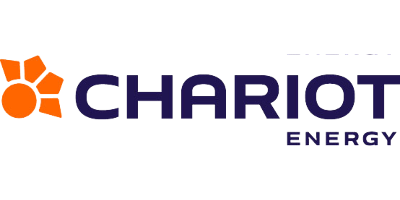Business Electricity Rates in Texas
Currently the average commercial electricity rate in Texas is $0.0782 /kWh. This rate does not include transmission and delivery fees and is sometimes called the "energy charge".
Below are the lowest available business electricity rates in Texas. *Note: Your business may qualify for lower rates depending on it's usage and other factors. We recommend using our link your data tool so that you can find the best rate for your business and see future bills accurately.
|
Provider
|
Term Length
|
Rate
|
|---|---|---|
|
1 month
|
4.68¢
|
|
|
3 months
|
5.03¢
|
|
|
9 months
|
6.78¢
|
|
|
12 months
|
6.82¢
|
|
|
12 months
|
7.00¢
|
|
|
12 months
|
7.25¢
|
|
|
12 months
|
8.29¢
|
Source: EnergyBot (updated daily)
Texas Commercial Electricity Rates
These are the current business electricity rates in Texas. It’s important to note that these rates are for all utilities in Texas (ex. AEP Texas, Centerpoint, Oncor, and Texas New Mexico Power) and are based on an average small business electricity usage of 2500 kWh per month for a 12 month plan. Texas electric rates vary depending on how much energy you use. If you’re looking for residential electric rates in Texas, visit this page to compare plans for your home.
How Commercial Electricity Rates in Texas Work
In Texas, businesses have the unique advantage of choosing their electricity provider, allowing them to select the best option tailored to their specific needs. Different energy companies offer a variety of electricity plans and competitive rates, with custom options based on business size and usage requirements.
The deregulated energy market in Texas empowers businesses to compare electricity rates and plans from multiple providers, ensuring they find the most suitable and cost-effective option. By leveraging this competitive landscape, Texas businesses can optimize their energy usage and achieve significant cost savings. Working with an energy broker can further help businesses compare, negotiate, and customize energy plans for optimal savings and hassle-free management.
- Business electricity rates vary based on several factors, including usage, load factor, location, and more.
- EnergyBot allows you to link your business electricity usage history to view the best real-time pricing and gather quotes from dozens of providers.
- If you need help, our Texas-based support team is here to help.
Business Electricity Providers
In Texas, you get to choose your electricity provider. These providers, called Retail Electric Providers (REPs) are licensed and regulated by the PUC of Texas. Providers buy power from generation companies and sell it to customers like your business. They are seperate from your utility like Oncor, CenterPoint, Texas New Mexico Power, or AEP. There are dozens of licensed electricity providers in Texas.
Each provider offers different rates, support, and contract terms. Some focus on low-cost plans. Others lean into renewable energy or flexible billing. What matters most is what works best for your business.
EnergyBot helps you compare business energy providers by giving you transparent pricing, reliable customer service, and options that support your energy goals.
Switch Business Electricity Suppliers
Switching your electricity provider doesn’t have to be a headache. We make comparing plans for your small business easy. In Texas, the deregulated market allows you to switch electricity providers effortlessly, ensuring you find a more cost-effective option without any service interruptions.
Our system will pull your historical energy usage and match you with electricity providers that offer the best plans for you. You can switch 100% online or if you prefer our energy procurement team can help guide you along the way.
You can get started shopping here or contact us over the phone at (888) 743-1870.
How to Get the Best Business Electricity Rates in TX
Most small businesses can find the best rates online using EnergyBot to pull their historical usage data to pair them with the best electricity plans. Comparing energy prices from various providers is crucial to secure the most favorable rates, especially considering factors like seasonal demand and market conditions. Monitoring market fluctuations is also essential, as it allows businesses to secure the lowest-priced plans and quickly adapt to changing energy prices.
Since most small business consumers use less energy than larger businesses, let’s say 240,000 kWh or less per year the enrollment process is relatively straightforward.
Larger commercial electric plans can be a bit more complicated.
Types of Business Energy Plans
Businesses in Texas can choose from a range of commercial electricity plans tailored to meet small businesses’ various energy requirements, thereby empowering them to manage their operational costs and sustainability goals. Selecting the right energy plan is crucial, as it can significantly impact both small and large businesses by providing tailored solutions and strategic guidance.
Small business consumers will most likely want the first type of plan, a fixed-rate plan.
Fixed-Rate Plans
These are the most common and offer a locked-in price per kilowatt-hour (kWh) for the entire contract and term length, which usually spans from 6 months to 3 years. Fixed rate energy plans provide stability and predictability in energy costs, protecting businesses from potential price fluctuations in the energy market.
This is usually the best option for most Texas businesses, especially small businesses.
Variable-Rate Plans
In contrast, a variable rate plan’s rates can change monthly, depending on the current electricity market prices. While a variable rate plan can lead to savings during periods of low energy costs, it can also result in higher charges during peak demand times. This electricity plan type suits businesses that can manage potential cost fluctuations.
Time-of-Use (TOU) Plans
These plans vary pricing based on the time of day, with lower rates during off-peak hours and higher rates during peak demand times. They incentivize businesses to shift their energy usage to off-peak periods, promoting energy efficiency and cost savings.
Demand Response Programs
These innovative plans offer businesses financial incentives to reduce their power consumption during times of peak electricity demand, helping to maintain grid reliability. The Electric Reliability Council of Texas (ERCOT) plays a crucial role in managing the electricity grid and ensuring reliable service, especially during extreme weather conditions. Participation can lead to substantial savings and a more sustainable energy footprint.
Green Energy Plans
These are an excellent choice for environmentally conscious businesses. They supply power generated from renewable sources, like wind or solar. Depending on the specific plan, a portion or all of the energy may be sourced from renewables.
Solar and wind energy are especially important in supporting a reliable, resilient, and environmentally friendly energy system in Texas. Wind energy, in particular, is a vital component of Texas's diverse renewable energy portfolio and helps stabilize the energy grid.
While transitioning towards renewable alternatives, it is important to note that fossil fuels still play a significant role in the current energy landscape.
Indexed Rate Plans:
These plans tie the per kWh rate to a specific market index, such as the price of natural gas or the Public Utility Commission of Texas's (PUCT) electricity price index. This plan is best suited for businesses willing to take a risk in exchange for potentially lower costs.
Choosing the Right Plan
Selecting the right electricity plan is crucial for businesses to manage their energy costs effectively. Commercial electricity rates in Texas vary depending on factors such as usage, location, and market conditions. Businesses should consider their energy consumption patterns, peak demand times, and budget when choosing a plan. Fixed rate plans, variable rate plans, and renewable energy plans are among the options available. It is essential to carefully review the Electricity Facts Label (EFL) and understand the terms and conditions of each plan before making a decision. By choosing the right plan, businesses can optimize their energy usage, reduce costs, and minimize their carbon footprint. This strategic approach to energy management can lead to significant cost savings and enhanced operational efficiency.
Factors Impacting Your Bill
Your business energy bill can be a big blow to your bottom line. While you can try to reduce your usage and become more energy efficient, sometimes your electric rate per kWh is out of your hands.
For businesses, you have additional factors that may affect your energy rates, including:
Type of Business
Business energy plans and rates may vary by the type of business or industry. Energy supplies rely on complex models to mitigate their overall risk (by customer) and will want to know what type of business you operate.
Residential customers face different contract terms and legal requirements compared to businesses, including the potential for longer-term contracts and the necessity for compliance with specific energy regulations.
Business Size
Generally speaking, larger corporations have more buying power than the average small business since they use much more energy. Here are some examples of different size business electricity usages categories:
- Small business (Coffee shop, Retail, Professional office) - 2,500 kWh/month
- Medium Business (Restaurant, Gas Station, Small Manufacturing) - 20,000 kWh/month
This makes it even more important for small businesses to research small business electricity rates and find the best electricity provider for their usage. We make it easy for your small business to pull its electricity usage history online.
Via our one-of-a-kind technology and partnerships, you can use your energy habits to find the best electricity rate in about 5 minutes.
Usage
Business rates for energy usage vary by the type of business and the time of day that the energy is consumed. To determine your rate, suppliers rely on a demand curve. If you use a lot of energy at odd times it can cause you to have a higher rate. For example, churches and religious organizations that are generally using a lot more energy on a weekend often pay for more energy than other similar businesses with similar usage amounts.
Contract Length
By signing up for a longer contract with a supplier (2-3 years), you should be able to secure a lower energy rate. With longer terms, suppliers are able to forecast usage better. This allows them to purchase energy futures to balance supply and demand. Providers will often pass those savings on to you.
Market Factors on Your Business Electricity Rate
There are many variables that affect rates. In most cases, you have no control over these. The most common are:
- Weather
- Market Conditions
- Generation efficiency
- Peak and off-peak load
- Utility charges and tariffs
- Regulations
Power plants play a crucial role in maintaining capacity during peak demand periods, which is essential for managing electricity rates, especially with the rising energy consumption in Texas.
Energy Deregulation in Texas
A majority of Texas business consumers are in deregulated energy markets. This means they have the ability to shop for business electricity providers and compare rates. Many entities call this “electric choice.”
In a deregulated market, it is important to understand the distinction between an energy provider and a utility company. While energy providers are responsible for selling and managing energy plans, utility companies are tasked with delivering energy, maintaining infrastructure, and managing outages.
Electricity providers in Texas compete against each other to offer the best service and lowest electricity pricing.
Major Texas Cities with Energy Deregulation
In most cases, if your business is in one of these cities, you have the ability to shop for the best Texas electricity plans for your business.
- Houston (and surrounding areas)
- Dallas (and surrounding areas)
- Fort Worth (and surrounding areas)
- Corpus Christi (and surrounding areas)
- Arlington
- Plano
- Frisco
- Waco
- San Angelo
You can learn more about switching electricity plans and comparing rates in Texas here.
Electricity Provider Reputation
The reputation of an electricity provider is a critical factor to consider when selecting a business electricity plan. A reputable provider will have a proven track record of delivering reliable service, competitive rates, and excellent customer support. Businesses should research the provider’s history, read reviews, and check their ratings with the Public Utility Commission of Texas (PUCT). A reputable provider will be transparent about their pricing, plans, and services, ensuring that businesses can make informed decisions. By choosing a reputable electricity provider, businesses can ensure a smooth and hassle-free experience, avoiding potential issues and ensuring consistent energy supply.
FAQs About Commercial Electric Plans
Who is the cheapest business electricity supplier?
It depends on your location and usage, but Constellation Energy, Direct Energy, and Gexa Energy often have some of the lowest rates in Texas.
What are the average commercial electric rates in Texas?
As of today, the average commercial rate in Texas is $0.0782/kWh, but rates can vary depending on your business’s specific needs and usage.
What is a retail electric provider?
A retail electric provider (REP) is a company that supplies electricity to consumers in Texas. They purchase electricity from generators and resell it to customers, offering various plans and rates.
See today's electricity rates for cities in Texas
- Dallas
- Houston
- Fort Worth
- Austin
- Katy
- Conroe
- Arlington
- Corpus Christi
- Plano
- Lubbock
- Abilene
- Addison
- Alamo
- Albany
- Aledo
- Alice
- Allen
- Alpine
- Alvin
- Andrews
- Archer City
- Argyle
- Atascocita
- Athens
- Azle
- Bacliff
- Balch Springs
- Ballinger
- Bay City
- Baytown
- Bedford
- Beeville
- Bellaire
- Belton
- Benbrook
- Big Spring
- Bishop
- Bonham
- Brazoria
- Brookshire
- Brownsville
- Brownwood
- Burkburnett
- Burleson
- Cameron
- Carrizo Springs
- Carrollton
- Cedar Hill
- Channelview
- Childress
- Clarendon
- Clarksville
- Cleburne
- Clifton
- Clute
- Colorado City
- Columbus
- Commerce
- Coppell
- Copperas Cove
- Corsicana
- Crowell
- Cypress
- Decatur
- Deer Park
- Del Rio
- Denison
- Denton
- DeSoto
- Dickinson
- Donna
- Duncanville
- Eastland
- Edinburg
- El Campo
- Elgin
- Ennis
- Euless
- Falfurrias
- Flower Mound
- Forest Hill
- Forney
- Fort Davis
- Fort Stockton
- Freeport
- Frisco
- Gainesville
- Galena Park
- Galveston
- Garland
- Gatesville
- George West
- Georgetown
- Goliad
- Graham
- Granbury
- Grand Prairie
- Grandview
- Grapevine
- Haltom City
- Harker Heights
- Harlingen
- Hidalgo
- Hillsboro
- Hitchcock
- Hubbard
- Humble
- Hurst
- Hutchins
- Ingleside
- Irving
- Jersey Village
- Kaufman
- Keene
- Keller
- Kemah
- Kermit
- Killeen
- Kingsville
- La Marque
- La Porte
- Lake Jackson
- Lancaster
- Laredo
- League City
- Lewisville
- Lindale
- Lufkin
- Magnolia
- Manor
- Mansfield
- Marfa
- Mathis
- McAllen
- McGregor
- McKinney
- Memphis
- Mercedes
- Mesquite
- Midland
- Midlothian
- Mineral Wells
- Mission
- Missouri City
- Nacogdoches
- Nocona
- North Richland Hills
- Northlake
- Odessa
- Ozona
- Paducah
- Palestine
- Paris
- Pasadena
- Pearland
- Pecos
- Pflugerville
- Pharr
- Pleasanton
- Port Aransas
- Port Isabel
- Port Lavaca
- Portland
- Pottsboro
- Presidio
- Quinlan
- Red Oak
- Richardson
- Richland Hills
- Richmond
- Rio Grande City
- Roanoke
- Rockport
- Rockwall
- Roma
- Rosenberg
- Round Rock
- Rowlett
- Royse City
- Saginaw
- Salado
- San Angelo
- San Antonio
- San Benito
- San Juan
- San Leon
- Seabrook
- Seagoville
- Sherman
- Snyder
- South Padre Island
- Southlake
- Spring
- Springtown
- Stafford
- Stephenville
- Sugar Land
- Sulphur Springs
- Sweetwater
- Taylor
- Temple
- Terrell
- Texas City
- The Colony
- The Woodlands
- Tomball
- Tyler
- Uvalde
- Vernon
- Victoria
- Waco
- Waxahachie
- Weatherford
- Webster
- Weslaco
- West Columbia
- White Settlement
- Whitney
- Wichita Falls
- Woodway













